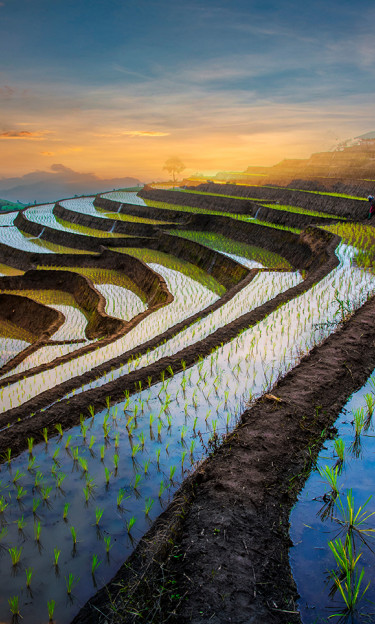Groundwater uses and benefits

These services include:
- provisioning services, which allow groundwater to be withdrawn for (human) water use purposes (agriculture, industry, human settlements);
- regulatory services, which reflect the buffer capacity of aquifers to regulate the groundwater systems’ quantity and quality regimes;
- supporting services, on which groundwater-dependent ecosystems (GDEs) and other groundwater-related environmental features rely
- cultural services linked to leisure activities, tradition, religion or spiritual values, which are associated with particular sites
Provisioning services
Many of the world’s largest cities, and numerous smaller cities and towns, rely on groundwater as their major source of freshwater. This dependence will intensify, particularly in the rapidly urbanizing areas of developing countries and emerging economies. Groundwater represent the predominant source of household water for the rural population in developing nations, being the most cost-effective way of providing a secure supply of water to villages.
Regulatory services
Regulatory services reflect the buffer capacity of aquifers to regulate the groundwater systems’ quantity and quality regimes.
Supporting services
Aquatic and terrestrial groundwater-dependent ecosystems (GDEs) provide habitat, support biodiversity, buffer floods and droughts, provide food, and offer cultural services.
Cultural services
Cultural services are linked to leisure activities, tradition, religion or spiritual values, which are associated with particular sites.
Groundwater plays an important role in cultures and religions across the world. Many Indigenous cultures believe that springs, wetlands and their associated ecosystems have a broader, intrinsic value beyond the services they provide to people.

Climate Change
Groundwater offers a number of additional opportunities, such as enhancing storage for improved water security, and adapting to the impacts of climate change.
Climate change directly impacts the natural recharge of groundwater through its influence on precipitation and on leakage from surface waters, including ephemeral streams, wetlands and lakes. A widespread impact of climate change influencing groundwater replenishment is the intensification of precipitation.
The ability of groundwater resources to buffer short-term changes and shocks can also help mitigate the impacts of natural disasters and emergencies, such as industrial accidents, droughts, floods, earthquakes and landslides, when surface water supply systems are directly affected.


